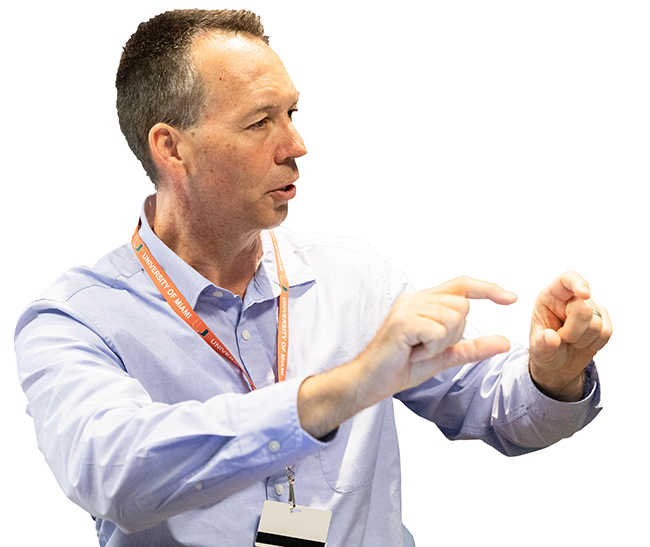
By RaeAnn Slaybaugh
![]()
By anyone’s standards, Tom Lunak, CFO of Calvary Chapel Fort Lauderdale, has extensive experience in the banking industry. In his career, he has held senior-level titles at, and done consulting work for, several banking institutions.
So, it was a pleasant surprise when, a few years ago, he was asked to become CFO at the church where he and his family have been members since 1989.
Just prior to that invitation, Lunak had transitioned out of banking management to start a consulting firm. In that capacity, he knew to expect some 80-plus-hour work weeks. Other weeks, however, would likely afford him some free time.
“I just kind of said [to the church], ‘Look, if you’ve got projects or something you need done on your finance group, I’d be happy to help out,” he said.
Lunak was introduced to Scott Barrett, the interim executive administrator at the time, and they had lunch.
“About midway through, he asked, ‘Would you be interested in being the CFO?’” Lunak recalled. “I was completely unprepared for that.”
To put it lightly, taking on the full-time CFO role at the church would require Lunak to “unwind some things.” But if it sounds like a difficult decision, to hear Lunak tell it, it wasn’t really so tough.
“My wife and I prayed about it, and we just felt that the Lord was leading me to be here,“ he said. “It’s been great. I’ve had a blast.”
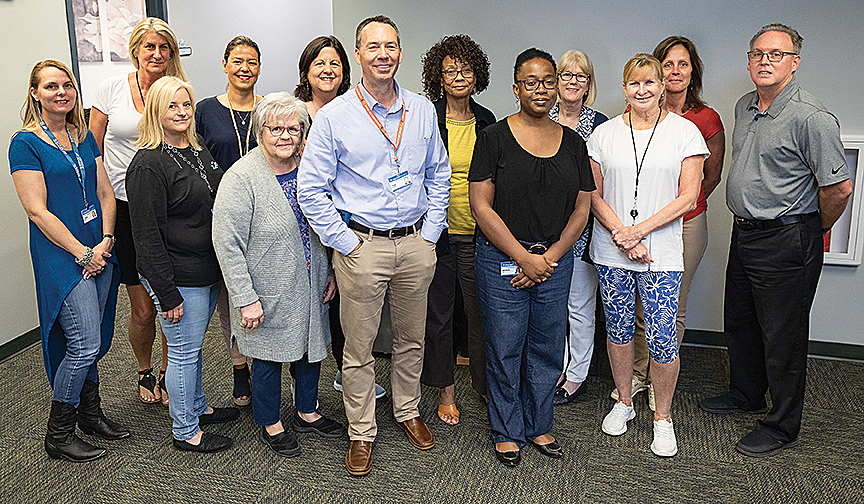
Some things change, some stay the same
In some ways, Lunak says that being the CFO of a large church — a really large church, with 11 campuses, a Christian school, a full-service restaurant, a skate park and a school of worship — isn’t disparate from his responsibilities as a bank CFO or executive vice president.
“At the bank, you generally have a main office and branches; the multi-site church model isn’t all that different, from that standpoint,” he explained.
Routinely evaluating the health of each campus and entity, and allocating resources accordingly to help them all thrive, also resonated with his experience.
However, being surrounded by believers every day has been a game-changer.
“Does it mean there’s no conflict? No, of course not,” Lunak acknowledged. “But, at the church, any conflict is managed in a Christian environment. And having the focus on Jesus Christ — not profit — is really different.”
The driver, instead, is the practice of good stewardship.
“This isn’t our money — this is God’s money,” Lunak pointed out. “So, we need to ask, What’s the best way of managing it?”
It was this mindset that made Lunak reach out to the church’s long-time banking partner several months before the June 2018 loan maturity deadline to inquire about refinancing the debt. The relationship dated back to the 1980s.
“It was a point in time when we could have continued along with our existing bank, or we could look to see what else is out there,” he explained. “And I thought, Well, it’s our duty to be good stewards and look at what the best thing is for us, as a church, right now.”
Unfortunately, he said, there wasn’t much flexibility in the options which the church’s long-time lender offered in response.
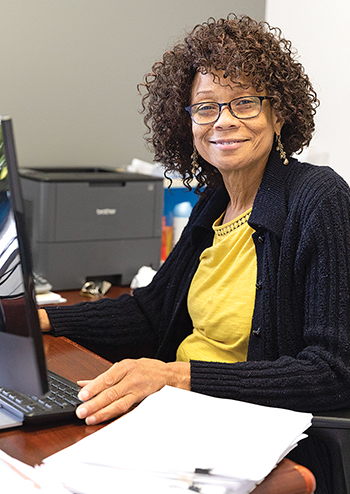 Good stewardship drives due diligence
Good stewardship drives due diligence
Knowing they’d likely need to move in a new direction, Lunak and his team spent those final pre-loan-maturity months reaching out to several lenders. A handful of other lenders reached out to him. In the end, there was no shortage of options; by June, the church had multiple commitments in hand from which to choose.
Even so, when Bank of the West and its Religious Institution Banking division hit Lunak’s radar — though it was late in the vetting process — it made a big impression.
“Our attorney said he’d been contacted by the bank, and that I might want to check these guys out,” Lunak said.
Admittedly, Lunak wasn’t anxious to talk to yet another lender, but the commitment to good stewardship — and the feeling that this might just be a God thing — compelled him to pick up the phone.
Lunak met Jeremy Moore, regional vice president and director at Bank of the West Religious Institution Banking, and the “fit” was clear right away.
Instead of being grouped in with most commercial banks’ mid-cap market group — which might also be making loans to manufacturing companies, software developers, and so on — Lunak says he immediately appreciated that he, Moore and Bank of the West all “spoke the same language.”
“That’s especially nice when they’re the ones doing your credit underwriting,” he said. “Quite frankly, Bank of the West was the first bank I’d encountered with a vertical for religious institutions. They knew what we go through as a church — that the dynamics of giving aren’t the normal revenue line you’d see with a secular company. Basically, they understood the seat I’m in.”
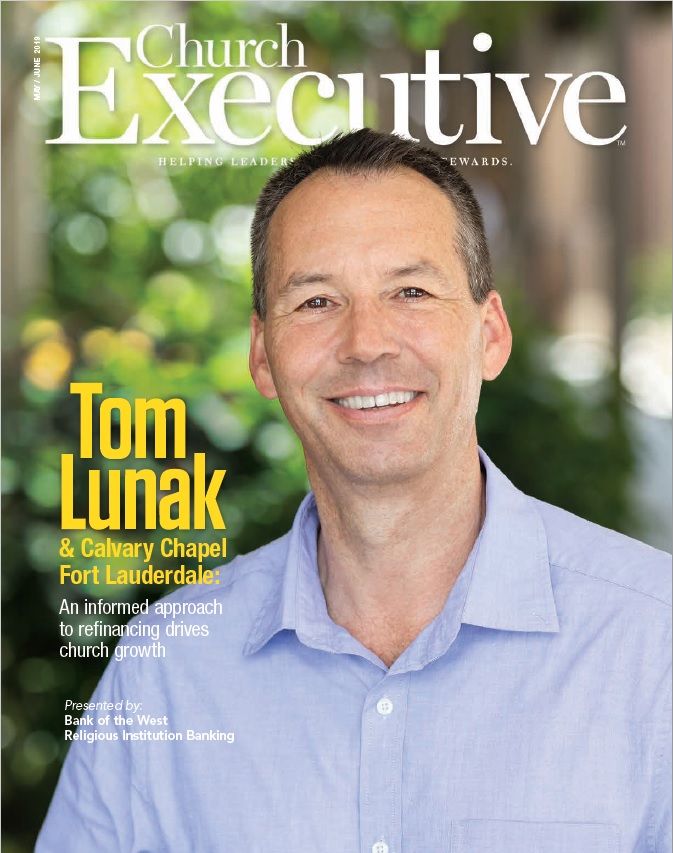
He said that he also found some comfort in the fact that they’re part of a larger international bank.
“Bank of the West came back with the best overall terms. In general, if we can achieve a savings with our banking relationship, all other things being equal, I’ve got more money that I can commit to my ministry,” he said. “By all means, then, that’s the route we should take.”
Hugely important, the bank also designed a refinancing package that precisely fit what the church was looking for. The resulting fixed-rate loan with a flexible amortization period — a structure that wasn’t offered by the other banks — would help manage the church’s cash flow.
“One of our goals is to pay down our debt as quickly as possible, so we wanted to make sure there were no penalties for doing that,” Lunak added. “We also had some capital projects we were trying to do, and we didn’t want to borrow for them. So, another way of managing that was to extend the term of our loan and get some of those things taken care of before we started accelerating payments again.”
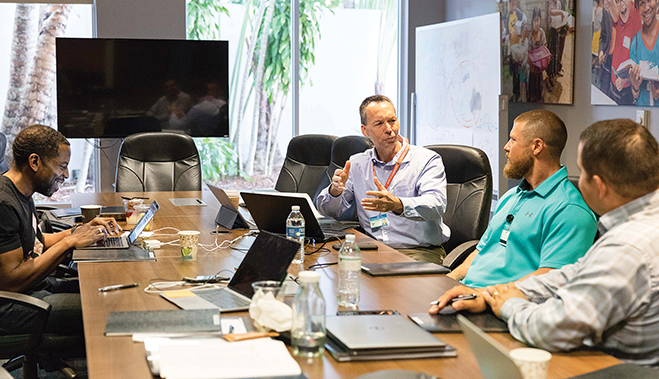
Change brings opportunity
With any big change, of course, comes the need for some retooling.
On a day-to-day basis, enlisting a new, highly valued banking partner, one without a physical location, or branch, nearby, meant embracing new processes. Until that point, the church had done most of its routine banking activities (deposits, etc.) locally.
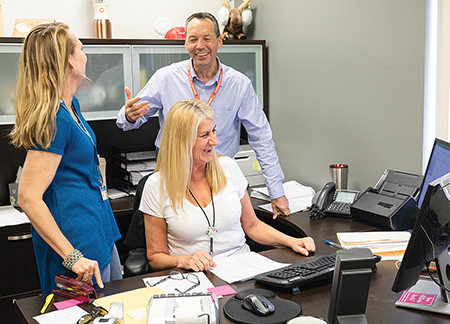 Now, the church maintains a few local bank accounts to ensure access to cash to fund smaller endeavors like mission trips to Mexico, for example. Cash management, however, is now done by a professional service involving armored-car transportation and money processing.
Now, the church maintains a few local bank accounts to ensure access to cash to fund smaller endeavors like mission trips to Mexico, for example. Cash management, however, is now done by a professional service involving armored-car transportation and money processing.
And the church’s adoption of remote deposit capture prior to switching to Bank of the West as its lender came at a really opportune time. In fact, Lunak said, without remote capture, the church would have never been able to go with Bank of the West.
“It’s not hard to do,” he said. “With technologies like that available, you can look at so many more [lending] options that might meet your needs better.”
Lunak wasn’t alone in this; his big-picture perspective was shared by the entire leadership team: a handful of smaller concessions would be worth the value gained, from a lending perspective.
After discussing the pros and cons of this option with a team of directors and the accounting department, the church leadership team agreed that it was a good idea and that they would be able to manage the day-to-day changes.
“Everyone said, ‘Yeah, let’s go ahead, let’s do this. We think this will work out well,’” Lunak said. “And it has. It really has.”
The views and opinions expressed in this article are those of the author and do not necessarily reflect the official policy or position of Bank of the West.
Bank of the West. Member FDIC. Equal Housing Lender
QUICK FACTS ABOUT CALVARY CHAPEL FORT LAUDERDALE
Year Established: 1987
Number of locations: 11 + web campus
Combined weekly attendance: 15,000
2019 budget: $56.2 million across all offerings (church, school, restaurant, bookstore, skatepark and school of worship)


